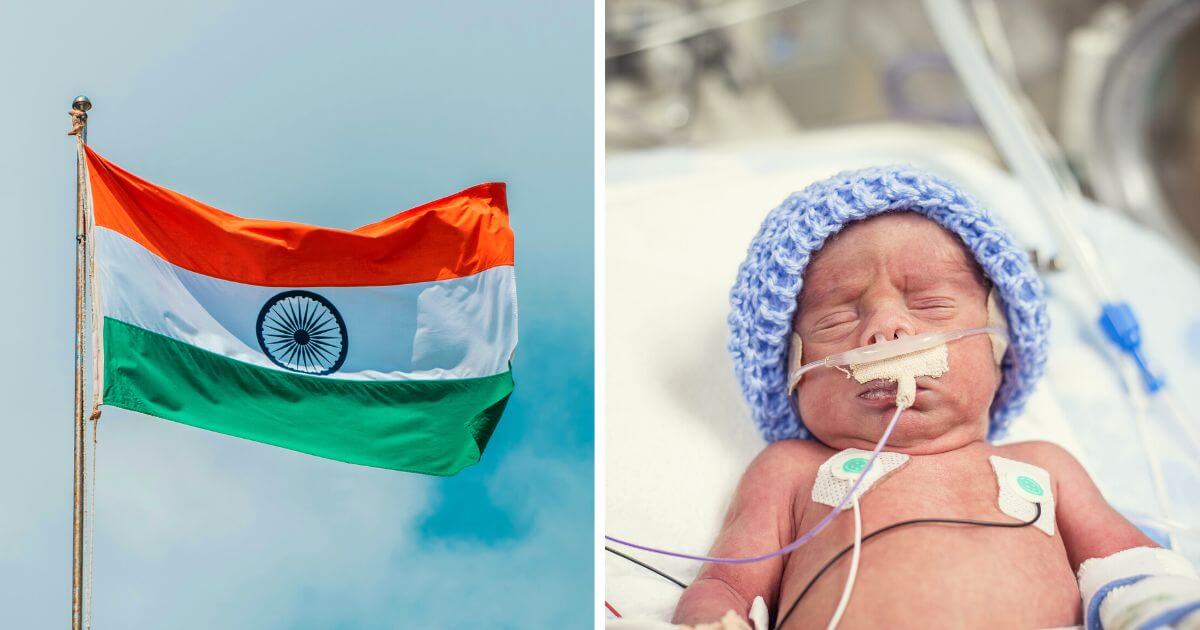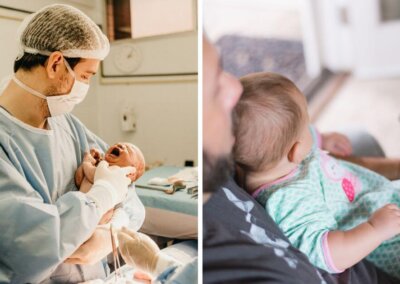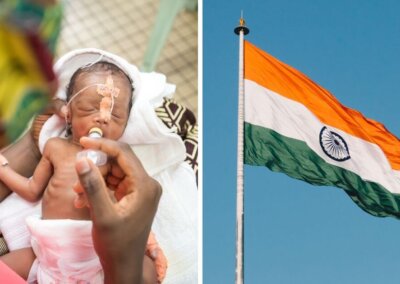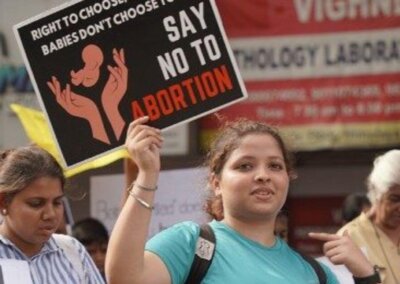A baby born in India at 24 weeks and weighing only 400 grams has gone home after 94 days in hospital.
Baby Shivanya was born in Pune, India, in May last year. Sadly, babies born before 28 weeks or weighing less than 1kg in India only have a 30-40% survival rate, so Shivanya’s chances were not looking good.
However, when Shivanya was born, she was immediately moved to the neonatal intensive care unit at Surya Mother And Child Super Speciality Hospital. Dr. Sachin Shah, Director, Neonatal & Pediatric Intensive Care Services at the hospital said “Now 400 gm is very small and the skin was extremely fragile. We kept the baby in a special incubator so that the skin would heal. We also put some special catheters through the belly button because putting the IV lines in was not possible. Through the belly button we put special catheters to give nutrition and also for monitoring the blood pressure and regular blood sampling of the baby”.
Dr Shah explained that things were especially difficult because most of the equipment they had to use was not designed for babies that small. “Usually all the equipment used is for babies who are more than 500 gm, 600 gm. We had to modify it”.
Dr Shah’s team had to do regular sonographs to ensure that her brain was developing properly.
“The baby was kept on the ventilator as the baby was not able to breathe on its own. The baby was in our NICU for nearly three months and needed breathing support for like two and a half months. Feeds were started slowly like through a feeding tube which was put into the stomach. The baby started putting on weight also. The best part was that the baby turned 1 kg”, he said.
After a 94-day stay in hospital with all its ups and downs, Shivanya was discharged. She weighed 2.13kg.
Amazingly, Shivanya does not appear to have any developmental difficulties. Her doctor said “There are long term implications for all babies who are born premature. But specifically when I talk about this baby, now, Shivanya is nearly 6 months old and she is like any other normal baby. She is smiling, interacting with the mother, playing with the mother and father, and she is also eating well and also putting on weight. So all these parameters point towards the normal development”.
Dr Shah hopes that India will “catch up with the rest of the developed countries” where the survival rate for babies born before 28 weeks or weighing less than 1kg is higher than 80%.
Almost four out of five babies born prematurely between 22 and 28 weeks gestation survive to discharge from the hospital according to recent research.
A study, ‘Mortality, In-Hospital Morbidity, Care Practices, and 2-Year Outcomes for Extremely Preterm Infants in the US, 2013-2018’, by Dr Edward F Bell of the University of Iowa, found that from 2013 to 2018, with infants born between 22 and 28 weeks gestation, “survival to discharge occurred in 78.3% and was significantly improved compared with a historical rate of 76.0% among infants born in 2008-2012”.
The study, which took place between 2013 and 2018, assessed 10,877 infants born between 22 and 28 weeks gestation in 19 academic medical centres across the US.
This means that almost four out of five extremely prematurely born babies survived and were able to be assessed at 22-26 months corrected age (22-26 months from their due date) for a number of health and functional outcomes.
Right To Life UK spokesperson Catherine Robinson said “The outcomes for extremely premature babies are improving all the time and it is wonderful to hear that baby Shivanya has gone home despite the odds being stacked against her.”












